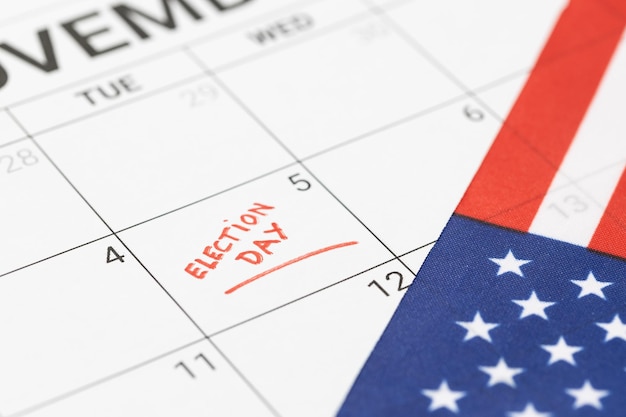Register to Vote Online in All 50 States Before 2025 Deadlines

Registering to vote online is a convenient way for eligible citizens in the U.S. to participate in elections; deadlines vary by state, but aiming for registration well before the 2025 elections ensures your voice is heard.
Want to make sure you’re ready to vote in the upcoming elections? How to register to vote online in all 50 states before the 2025 deadlines is easier than you might think. This guide will walk you through the process, state by state, so you can exercise your right to vote.
Why Register to Vote Online?
Registering to vote online offers a streamlined and accessible way for eligible citizens to participate in the democratic process. With deadlines looming for the 2025 elections, understanding the benefits and processes involved is crucial.
Online voter registration is not just convenient; it’s also efficient, reducing the chances of errors and ensuring your registration is processed quickly.
Convenience and Accessibility
One of the primary advantages of online voter registration is its convenience. You can complete the process from the comfort of your home, at any time that suits you, without the need to visit a physical registration office.
This accessibility is particularly beneficial for individuals with mobility issues, those living in remote areas, or anyone with a busy schedule.
Accuracy and Efficiency
Online systems often have built-in checks to ensure the accuracy of the information you provide. This reduces the likelihood of errors that can occur with paper forms, such as misreading handwriting.
Additionally, online registration is typically faster than traditional methods, allowing election officials to process registrations more efficiently, which contributes to a smoother electoral process.
- Time-Saving: Registering online saves you time by eliminating the need to travel to a registration office or mail in a form.
- User-Friendly: Online registration websites are designed to be easy to navigate, even for those with limited computer skills.
- Instant Confirmation: Many states offer immediate confirmation that your registration has been received, providing peace of mind.
- Up-to-Date Records: Online systems allow you to easily update your registration information, such as a change of address, ensuring your records are always current.
In conclusion, registering to vote online offers significant advantages in terms of convenience, accuracy, and efficiency, making it an excellent option for eligible citizens looking to participate in the upcoming elections.
General Requirements for Online Voter Registration
While online voter registration is available in most states, there are general requirements that applicants must meet to be eligible. Understanding these requirements is essential to ensure your registration is successful.
These requirements typically include age, residency, and citizenship, although the specifics may vary slightly from state to state.
Age and Citizenship
Generally, to register to vote in the United States, you must be at least 18 years old on or before the date of the election. Some states allow 17-year-olds to pre-register, enabling them to vote as soon as they turn 18.
You must also be a citizen of the United States to register to vote. Non-citizens are not eligible, regardless of their residency status.
Residency Requirements
You are generally required to be a resident of the state in which you are registering to vote. This means you must live at an address within the state and intend to remain there.
Some states may require you to have lived in the state for a certain period, such as 30 days, before you can register. Check your state’s specific requirements to ensure you meet the residency criteria.

Additional Eligibility Criteria
In addition to age, citizenship, and residency, there are other eligibility criteria that may apply. For example, individuals with felony convictions may have restrictions on their right to vote, depending on state laws.
Some states may require you to have completed any parole or probation associated with a felony conviction before you are eligible to register. Mental competency may also be a factor in some states.
- Felony Convictions: Check your state’s laws regarding voter eligibility for individuals with felony convictions, as these vary widely.
- Mental Competency: Ensure you meet the mental competency requirements, which generally mean being capable of understanding the nature and effect of voting.
- ID Requirements: Be prepared to provide identification information, such as a driver’s license or social security number, when registering online.
- Registration Deadlines: Pay close attention to your state’s registration deadlines, as missing these can prevent you from voting in the next election.
In summary, to register to vote online, you must generally meet age, citizenship, and residency requirements, and comply with any additional eligibility criteria set by your state. Checking these requirements before you begin the registration process can save you time and ensure your registration is accepted.
Step-by-Step Guide to Online Voter Registration
The process for registering to vote online varies slightly from state to state, but there are common steps you can expect to follow. Here is a general guide to help you through the process.
First, visit your state’s official election website. You will usually find a link to the online voter registration portal there.
Accessing the Online Registration Portal
The first step is to find your state’s official election website. This is typically the Secretary of State’s website or the state’s Board of Elections website. Look for a section on voter registration.
Once on the website, find the link to the online voter registration portal. This may be labeled as “Register to Vote Online,” “Online Voter Registration,” or something similar.
Completing the Application Form
The online application form will ask for information such as your name, address, date of birth, and contact information. You will also need to provide your driver’s license or social security number for identification purposes.
Be sure to fill out all required fields accurately and completely. Any errors or omissions could delay or invalidate your registration.
Providing Required Documentation
Some states may require you to upload scanned copies of documents to verify your identity or residency. This could include a copy of your driver’s license, passport, or a utility bill with your name and address on it.
Make sure you have these documents ready before you begin the online registration process to avoid any delays.
- Gather Necessary Information: Collect your driver’s license, social security number, and any other required documents before starting.
- Follow Instructions Carefully: Read and follow all instructions on the registration form to ensure accuracy.
- Double-Check Your Answers: Review your answers carefully before submitting the form to avoid errors.
- Submit Your Application: Once you have completed the form and provided all necessary documentation, submit your application online.
In conclusion, registering to vote online involves accessing the online registration portal, completing the application form, and providing any required documentation. Following these steps carefully will help ensure your registration is processed smoothly and efficiently.
State-by-State Registration Deadlines for 2025
Voter registration deadlines vary by state, and it is crucial to be aware of these deadlines to ensure you are eligible to vote in the 2025 elections. Missing the deadline can prevent you from participating.
The deadlines typically fall 30 days before an election, but some states offer same-day registration. Here’s what you need to know.
Understanding Early and Late Registration States
Some states have early registration deadlines, requiring you to register well in advance of the election date. These deadlines can be as early as 30 days before the election.
Other states offer late registration, allowing you to register closer to the election date. Some even have same-day registration, where you can register and vote on election day.
Key Dates for Online Registration
While the general election is in November 2025, the specific dates for primary elections and other local elections will vary. Be sure to check your state’s election calendar for these important dates.
Keep in mind that the deadlines for online registration may differ from those for mail-in registration or in-person registration.
Resources for Finding Specific Deadlines
The best way to find the exact registration deadlines for your state is to visit your state’s official election website. These websites provide accurate and up-to-date information on voter registration deadlines.
You can also consult non-partisan organizations like the U.S. Election Assistance Commission or the National Conference of State Legislatures for information on election-related deadlines.

- Check Official Websites: Always verify deadlines on your state’s official election website for the most accurate information.
- Set Reminders: Set reminders on your phone or calendar to ensure you don’t miss the registration deadline.
- Plan Ahead: Register well in advance of the deadline to avoid any last-minute issues or complications.
- Spread the Word: Encourage friends and family to register to vote and inform them of the registration deadlines.
In conclusion, being aware of state-by-state registration deadlines for the 2025 elections is essential for participating in the democratic process. Check your state’s official election website for the most accurate and up-to-date information, and register well in advance to avoid missing the deadline.
Verifying Your Voter Registration Status
After you register to vote online, it’s a good idea to verify that your registration has been processed correctly. This ensures that you are listed in the voter rolls and eligible to vote.
Many states offer online tools to check your registration status. This is a simple and quick way to confirm your registration.
How to Check Your Registration Online
Most states have an online voter registration lookup tool on their election website. This tool allows you to enter your name, date of birth, and address to check your registration status.
The tool will confirm whether you are registered, your voting address, and your assigned polling location. If you find any errors, you can take steps to correct them.
What to Do if Your Registration Is Not Found
If the online tool does not find your registration, it could be due to a number of reasons. Common reasons include data entry errors, delays in processing, or an incomplete application.
In this case, contact your local election office to inquire about your registration status. They can help you troubleshoot the issue and ensure your registration is processed correctly.
Updating Your Voter Registration Information
If you have moved, changed your name, or need to update any other information on your voter registration, you can typically do so online. This ensures that your voter record is accurate and up-to-date.
Updating your registration is important because it affects where you vote and what elections you are eligible to participate in.
- Use Online Lookup Tools: Regularly check your registration status using your state’s online lookup tool.
- Contact Your Election Office: If you cannot find your registration online, contact your local election office for assistance.
- Update Your Information: Keep your voter registration information current by updating it whenever you move or change your name.
- Keep Records: Keep a record of your registration confirmation and any updates you make for future reference.
In summary, verifying your voter registration status is a crucial step in the voting process. Use online tools to check your registration, contact your election office if you encounter any issues, and keep your information up-to-date to ensure you are ready to vote in the upcoming elections.
Overcoming Common Online Registration Issues
While online voter registration is generally straightforward, you may encounter some common issues during the process. Knowing how to troubleshoot these issues can save you time and frustration.
These issues can range from technical problems to incorrect information. Here are some tips for resolving them.
Technical Difficulties
Technical issues, such as website glitches or internet connectivity problems, can sometimes interfere with the online registration process. If you encounter a technical issue, try clearing your browser’s cache and cookies, or using a different browser.
You can also try accessing the website at a different time of day, as peak usage times can cause slower performance.
Incorrect Information
Providing incorrect information on your registration form can lead to delays or even rejection. Double-check all the information you provide, including your name, address, and date of birth.
If you realize you have made a mistake after submitting your form, contact your local election office as soon as possible to correct the error.
Missing Documentation
Some states require you to upload scanned copies of documents to verify your identity or residency. If you fail to provide the required documentation, your registration may not be processed.
Make sure you have all the necessary documents ready before you begin the registration process, and follow the instructions carefully when uploading them.
- Clear Browser Cache: Clear your browser’s cache and cookies to resolve website glitches.
- Use a Different Browser: Try using a different web browser to see if the issue persists.
- Contact Tech Support: If you continue to experience technical issues, contact your state’s election website tech support for assistance.
- Double-Check Information: Carefully review all information before submitting your form to avoid errors.
In conclusion, overcoming common online registration issues involves addressing technical difficulties, correcting incorrect information, and providing any missing documentation. By following these tips, you can ensure your online voter registration process is smooth and successful.
| Key Point | Brief Description |
|---|---|
| 📝 Online Registration | Convenient way to register from home. |
| 📅 2025 Deadlines | Vary by state; check your local election office. |
| ✅ General Requirements | Age, citizenship, and residency. |
| 💻 Verify Status | Ensure your registration is processed correctly online. |
Frequently Asked Questions (FAQ)
▼
While most states offer online voter registration, a few states still require you to register by mail or in person. Check your state’s election website to confirm its online registration options.
▼
Some states allow you to register without a driver’s license or social security number, but you may need to provide other forms of identification. Check your state’s specific requirements.
▼
Yes, if you’ve moved to a different state, you can register to vote online in your new state of residence. You will need to meet the eligibility requirements of your new state.
▼
If you miss the registration deadline, you will not be eligible to vote in the upcoming election. However, you can register to vote for future elections as soon as the registration period reopens.
▼
If you need assistance with the online voter registration process, contact your local election office or consult non-partisan organizations that provide voter registration assistance. They can offer guidance and support.
Conclusion
Registering to vote online is a convenient and efficient way to ensure your voice is heard in the democratic process. By understanding the eligibility requirements, following the step-by-step guide, and being aware of state-by-state deadlines for the 2025 elections, you can successfully register and participate in shaping the future of your community and country.
